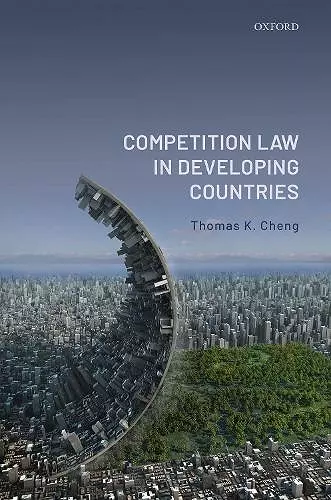Competition Law in Developing Countries
Format:Hardback
Publisher:Oxford University Press
Published:28th May '20
Currently unavailable, and unfortunately no date known when it will be back

This book brings together perspectives of development economics and law to tackle the relationship between competition law enforcement and economic development. It addresses the question of whether, and how, competition law enforcement helps to promote economic growth and development. This question is highly pertinent for developing countries largely because many developing countries have only adopted competition law in recent years: about thirty jurisdictions had in place a competition law in the early 1980s, and there are now more than 130 competition law regimes across the world, of which many are developing countries. The book proposes a customized approach to competition law enforcement for developing countries, set against the background of the academic and policy debate concerning convergence of competition law. The implicit premise of convergence is that there may exist one, or a few, correct approaches to competition law enforcement, which in most cases emanate from developed jurisdictions, that are applicable to all. This book rejects this assumption and argues that developing countries ought to tailor competition law enforcement to their own economic and political circumstances. In particular, it suggests how competition law enforcement can better incorporate development concerns without causing undue dilution of its traditional focus on protecting consumer welfare. It proposes ways in which approaches to competition law enforcement need to be adjusted to reflect the special economic characteristics of developing country economies and the more limited enforcement capacity of developing country competition authorities. Finally, it also addresses the long-running debate concerning the desirability and viability of industrial policy for developing countries. The author would like to acknowledge the Research Grants Council of Hong Kong for its generous support. The work in this book was fully supported by a grant from the Research Grants Council of Hong Kong (Project No. HKU 742412H).
This book is a must-read. It is the first comprehensive multidisciplinary discussion of the contribution of competition law to economic development. Building on an extensive analysis of the relationship between economic competition, growth, innovation, and development, the author explores how the competition law instrument should be adapted to the specificities, limitations, and goals of developing countries. Thanks to his deep knowledge of competition law, profound understanding of the challenges faced by developing countries, and pragmatic approach to competition, Thomas Cheng's unconventional call for a contextualized application of competition law in developing countries is compelling. * Professor Frédéric Jenny, Chairman OECD Competition Committee *
This is a compelling and ground-breaking book that will be important to the competition/antitrust community, to the law and development community, and to all those interested generally in law, economics, and poverty alleviation. Cheng systematically links economic growth, economic development, and competition policy for developing countries, and he suggests answers to the question, 'How should developing countries adjust their competition policy to address their needs for development and growth? * Professor Eleanor M. Fox, Walter J. Derenberg Professor of Trade Regulation, New York University School of Law *
ISBN: 9780198862697
Dimensions: 239mm x 163mm x 37mm
Weight: 1078g
604 pages